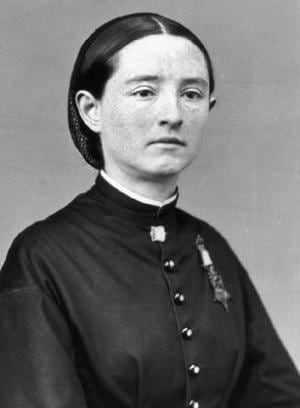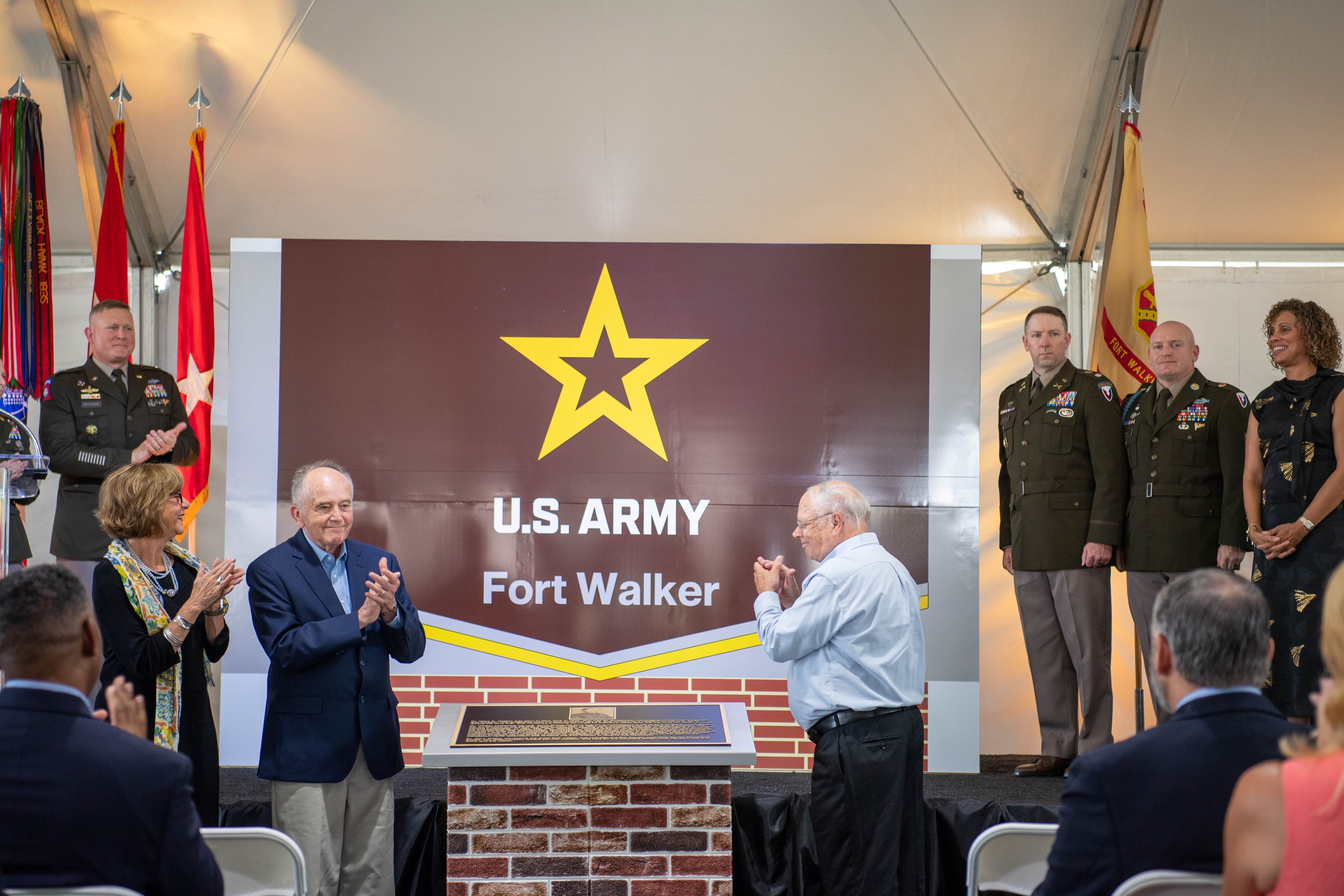In 1917, an Army review board rescinded the Medal of Honor that had been awarded to Dr. Mary Edwards Walker, an Army surgeon and former prisoner of war, more than half a century earlier. Walker refused to send the medal back, wearing it proudly for the remaining two years of her life.
So her family has a sense of how she’d respond to President Donald Trump’s June 10 announcement that nine Army bases renamed in 2023 — including one honoring her — would revert to their original names, initially given to commemorate Confederate Civil War generals.
Of the nine bases given new namesakes two years ago, only Fort Walker commemorated a Union hero from the Civil War.
“I don’t think this would surprise her,” Greg Therriault, a descendant of Walker’s sister Luna, told Military Times. “I think she’d be angry, as I am, but I don’t think she’d be surprised.”
While Walker never had her own children, some of her closest living relatives are committed to preserving her story: that of a bold maverick who lived by her convictions and had little use for social norms and arbitrary limitations.
The only female doctor in her 1855 graduating class at Syracuse Medical College in New York, Walker was determined to serve in the Army as a surgeon after the Civil War began six years later. Initially rebuffed, she refused to go home and volunteered her services to the Army, instead, until finally being granted an official post as a surgeon in 1863.
After months of treating Union soldiers at great risk to herself, Walker was captured by Confederate troops in 1864 and held as a prisoner of war for four months, suffering permanent damage to her eyes and lungs in a prison notorious for its filthy conditions.
When the Civil War ended the following year, President Andrew Johnson, seeking to honor Walker’s unique contribution to the war, settled on awarding her the Medal of Honor.

Walker was in her 80s when she received word that her medal had been revoked during a period of “toxic nationalism,” said Michelle Marra, another Walker relative.
“This feels familiar, of our government giving honor and revoking it,” said Marra, who’s descended from Walker’s sister Vesta. “And so my kind of thought is, good people always rise to the top, regardless of what goes on on a day-to-day basis.”
Long after Walker’s death, her act of resistance was rewarded: President Jimmy Carter formally reinstated her Medal of Honor in 1977. That restoration took place because of a petition championed by other Walker family members.
Marra said she suspected the recent renaming would prompt another petition.
“I just find it sad and wasteful, how much work and thought was put in by the base naming commission,” she said. “But I have hope that eventually, when things in America change, that we will have the opportunity to have a base named for her again.”
Fort Walker, Va., will once again be Fort A.P. Hill, the Army confirmed after Trump’s announcement. But the name will now honor three Civil War Union soldiers, with surnames Anderson, Pinn and Hill, rather than the original namesake — a Confederate general who was killed by Union troops in 1865.
Walker’s legacy survives in other ways. She was honored with a postage stamp in 1982 and inducted into the National Women’s Hall of Fame in 2000. Last year, the U.S. Mint issued a commemorative quarter with her image in an event that family members said had a large and celebratory turnout.
In recent years, Walker’s flouting of the gender norms of her time has attracted fresh interest to her story. She insisted on wearing pants in her work as a surgeon, and at times was mocked and harassed for her choice of conventionally masculine clothing.
Marra, who spent 17 years as an Army spouse and said she’d met other Medal of Honor recipients over the years, said Walker was always proud to be a woman, and even opted at times to wear her long hair down when tending to soldiers.
But, she said, Walker’s gender is a lesser part of her story.
“What the story should be is what she has done for our nation, not her gender,” Marra said. “That said, it really, really hurt, and I was very disappointed earlier this year when I saw web pages dedicated to her in our federal government taken down. Seeing those 404 codes, that was disappointing. And that seems silly to be erasing the digital footprint of someone who has been held in such high regard until now.”
George DeMass, a historian for Walker’s hometown of Oswego, N.Y., where her Medal of Honor remains on display, said he suspected she might enjoy, on some level, the furor over a base bearing her name.
“She lived in controversy all her life, and now, 100 years after her death, she’s in controversy,” he said.
Therriault plans to take a page from Walker’s own playbook and resist the renaming on his own terms.
“They can change signs and they can do what they want, and they will,” he said, “but it’s still Fort Walker to me.”





